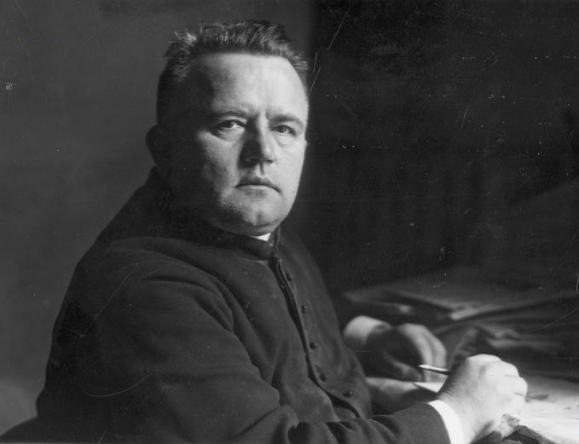Republic Of Tarnobrzeg on:
[Wikipedia]
[Google]
[Amazon]
The Republic of Tarnobrzeg ( pl, Republika Tarnobrzeska, ) was a short-lived political entity, proclaimed on 6 November 1918 in the Polish town of
 The idea of the Republic had its roots in mass demonstrations of peasants, which were taking place almost on a daily basis in the fall of 1918. Tarnobrzeg had been part of
The idea of the Republic had its roots in mass demonstrations of peasants, which were taking place almost on a daily basis in the fall of 1918. Tarnobrzeg had been part of
Encyklopedia.interia
A demonstration in Tarnobrzeg in early years of the 20th century, probably in 1918
{{coord missing, Poland 20th-century revolutions
Tarnobrzeg
Tarnobrzeg is a city in south-eastern Poland (historic Lesser Poland), on the east bank of the river Vistula, with 49,419 inhabitants, as of 31 December 2009. Situated in the Subcarpathian Voivodeship (Polish: ''Województwo podkarpackie'') sinc ...
. Its main founders were two socialist
Socialism is a left-wing economic philosophy and movement encompassing a range of economic systems characterized by the dominance of social ownership of the means of production as opposed to private ownership. As a term, it describes the ...
activists Tomasz Dąbal
Tomasz Jan Dąbal (; 29 December 1890 – 21 August 1937) was a Polish lawyer, activist of the interwar period and politician. He was the co-founder and the head of state of the Republic of Tarnobrzeg, succeeded by the Second Polish Republic ...
and the Roman Catholic priest Eugeniusz Okoń.
History
 The idea of the Republic had its roots in mass demonstrations of peasants, which were taking place almost on a daily basis in the fall of 1918. Tarnobrzeg had been part of
The idea of the Republic had its roots in mass demonstrations of peasants, which were taking place almost on a daily basis in the fall of 1918. Tarnobrzeg had been part of Austria-Hungary
Austria-Hungary, often referred to as the Austro-Hungarian Empire,, the Dual Monarchy, or Austria, was a constitutional monarchy and great power in Central Europe between 1867 and 1918. It was formed with the Austro-Hungarian Compromise of ...
(Kingdom of Galicia and Lodomeria
The Kingdom of Galicia and Lodomeria,, ; pl, Królestwo Galicji i Lodomerii, ; uk, Королівство Галичини та Володимирії, Korolivstvo Halychyny ta Volodymyrii; la, Rēgnum Galiciae et Lodomeriae also known as ...
) and the dissolution of this entity created a political unrest. On 6 November, after a demonstration with some 30,000 people, local peasants decided to take advantage of it and seize power.
As news of the Russian Revolution
The Russian Revolution was a period of political and social revolution that took place in the former Russian Empire which began during the First World War. This period saw Russia abolish its monarchy and adopt a socialist form of government ...
came to Tarnobrzeg, socialist activists decided to follow Communist ideas. They demanded the liquidation of capitalist government and the introduction of a land reform, which would result in taking away land from rich owners and giving it to the poor peasantry. Also, directed by Okoń and Dąbal, the peasants started to organize local administration as well as a peasants' militia.
The Republic of Tarnobrzeg was suppressed by units of the freshly created Polish Army
The Land Forces () are the land forces of the Polish Armed Forces. They currently contain some 62,000 active personnel and form many components of the European Union and NATO deployments around the world. Poland's recorded military history stre ...
at the beginning of 1919. Father Okoń was arrested but soon released, when the locals elected him to the Polish Parliament.
See also
*List of historical unrecognized states and dependencies
These lists of historical unrecognized or partially recognized ''states'' or ''governments'' give an overview of extinct geopolitical entities that wished to be recognized as sovereign states, but did not enjoy worldwide diplomatic recognition. ...
References
Encyklopedia.interia
{{coord missing, Poland 20th-century revolutions
Tarnobrzeg
Tarnobrzeg is a city in south-eastern Poland (historic Lesser Poland), on the east bank of the river Vistula, with 49,419 inhabitants, as of 31 December 2009. Situated in the Subcarpathian Voivodeship (Polish: ''Województwo podkarpackie'') sinc ...
History of Galicia (Eastern Europe)
1918 establishments in Poland
History of Tarnobrzeg
Tarnobrzerg
Tarnobrzerg
History of Podkarpackie Voivodeship
Tarnobrzerg
Tarnobrzerg